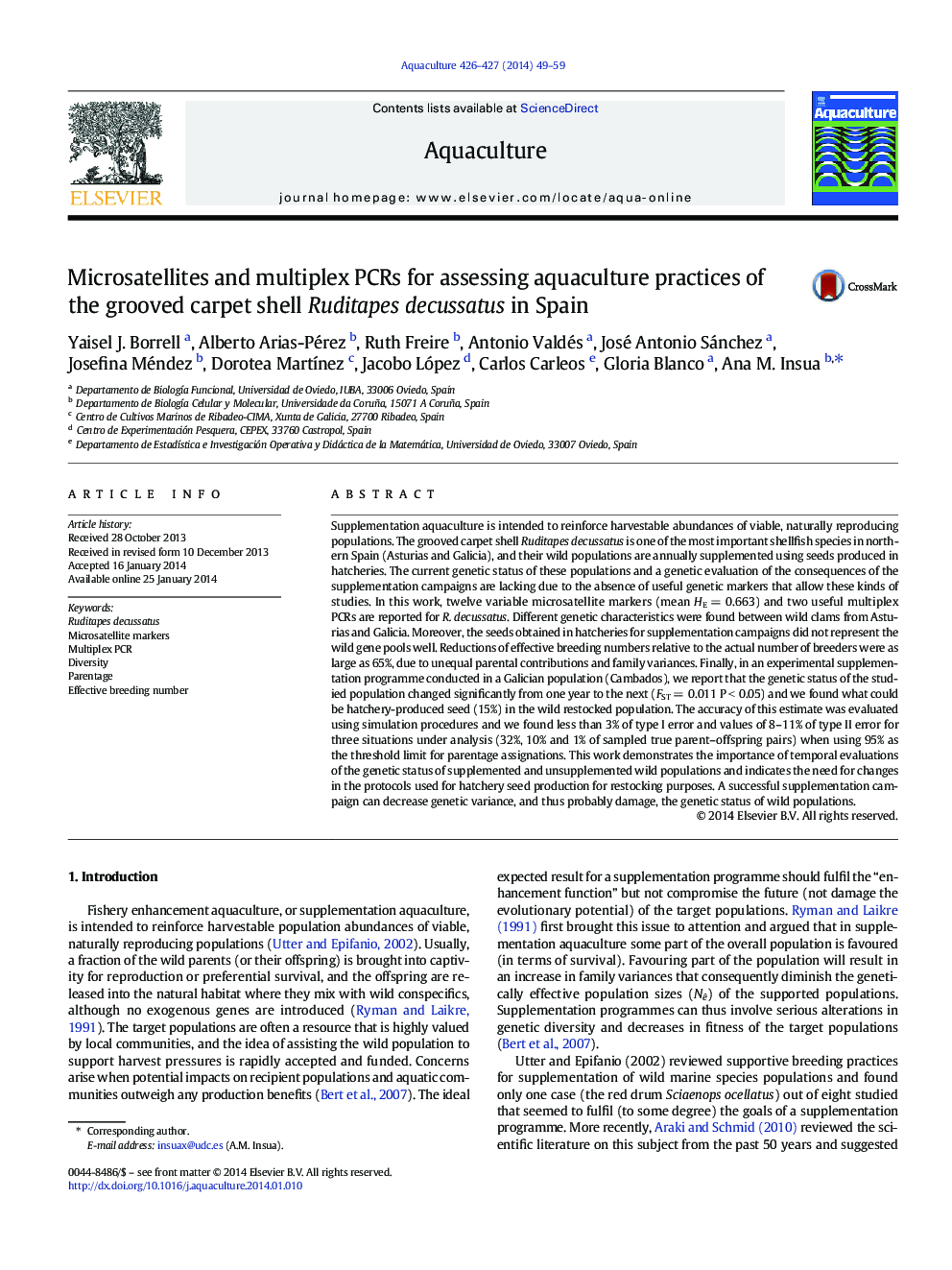| Article ID | Journal | Published Year | Pages | File Type |
|---|---|---|---|---|
| 8495140 | Aquaculture | 2014 | 11 Pages |
Abstract
Supplementation aquaculture is intended to reinforce harvestable abundances of viable, naturally reproducing populations. The grooved carpet shell Ruditapes decussatus is one of the most important shellfish species in northern Spain (Asturias and Galicia), and their wild populations are annually supplemented using seeds produced in hatcheries. The current genetic status of these populations and a genetic evaluation of the consequences of the supplementation campaigns are lacking due to the absence of useful genetic markers that allow these kinds of studies. In this work, twelve variable microsatellite markers (mean HEÂ =Â 0.663) and two useful multiplex PCRs are reported for R. decussatus. Different genetic characteristics were found between wild clams from Asturias and Galicia. Moreover, the seeds obtained in hatcheries for supplementation campaigns did not represent the wild gene pools well. Reductions of effective breeding numbers relative to the actual number of breeders were as large as 65%, due to unequal parental contributions and family variances. Finally, in an experimental supplementation programme conducted in a Galician population (Cambados), we report that the genetic status of the studied population changed significantly from one year to the next (FSTÂ =Â 0.011 PÂ <Â 0.05) and we found what could be hatchery-produced seed (15%) in the wild restocked population. The accuracy of this estimate was evaluated using simulation procedures and we found less than 3% of type I error and values of 8-11% of type II error for three situations under analysis (32%, 10% and 1% of sampled true parent-offspring pairs) when using 95% as the threshold limit for parentage assignations. This work demonstrates the importance of temporal evaluations of the genetic status of supplemented and unsupplemented wild populations and indicates the need for changes in the protocols used for hatchery seed production for restocking purposes. A successful supplementation campaign can decrease genetic variance, and thus probably damage, the genetic status of wild populations.
Related Topics
Life Sciences
Agricultural and Biological Sciences
Aquatic Science
Authors
Yaisel J. Borrell, Alberto Arias-Pérez, Ruth Freire, Antonio Valdés Antonio Valdés, José Antonio Sánchez José Antonio Sánchez, Josefina Méndez Josefina Méndez, Dorotea MartÃnez Dorotea MartÃnez, Jacobo López Jacobo López,
